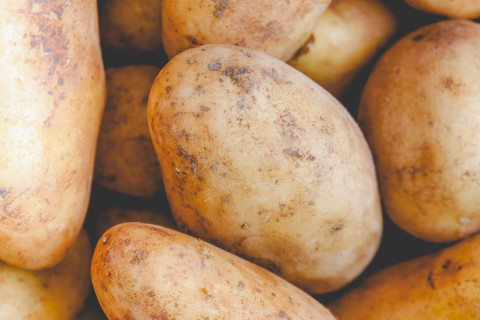The dissertation in health economics by project researcher Olli Salmensuu studies potato price formation, speculation and potential for affordable welfare in developing countries. The research demonstrated policies could make potato local, affordable food in developing countries. The dissertation research also opens up novel views into methodology concerning economic theory.
The potato has been for centuries a central nutritional source in the western society, and, particularly, an affordable food for the poor, levelling social development. In developing countries, contrarily, potato use has been rather meagre, as rice and wheat are comparably cheaper.
High potato prices are partly due to the warm climate in developing countries, needing more irrigation, fungicides, pesticides, and good quality planting material. Problems in logistics and storage also rise potato prices in city centres. Wealthier farms choose often to cultivate other crops which local agricultural policies favor. These obstacles are called potato supply constraints. In addition, country borders separate potato markets and price formation. In developing countries, as the potato faces high border tariffs, price levels are country-specific.
“Adverse factors operating in developing country societies remain to be rooted out from the way of the potato to build human welfare. Potato importance in developing countries increases by furthering its targeted factor input use and infrastructures, removing business constraints such as border tariffs while supporting producer share and local production,” Salmensuu advises.
Economic theory strengthened and a new tool locates speculation
According to economic theory, factor inputs with their prices determine product prices. This holds whether a bicycle, car, book, cloth, or internet service is produced. As you purchase a product, its price will compensate for the inputs used in its production chain. Whether the compensation received for labor or capital is in right proportion or sufficient remains yet another question.
Salmensuu demonstrated in his dissertation that the classic factor inputs are in a central role explaining potato price variation. Data dimension reduction results also strengthen underlying economic theories.
“To my knowledge this is the first time that the basic factors of production – land, labour, capital and technology – are all educed from a real life data using a dimension reduction technique,” Salmensuu points out.
Dimension reduction techniques are used in many scientific fields to compose from a greater number of variables a smaller number of new variables which more closely follow data variability, in a sense creating an abstract of the data space. A common method for dimension reduction is principal component analysis which Salmensuu also used. Economists have reservations about it, but dissertation results strengthen the theory.
“The economy is so complicated that we needed a sufficiently well-behaving environment to confirm the theory by data. If a scientific method is practically prohibited due to theory only, it signals that the theory is precarious. Of scientific theories, the economic theory is well-based, however, basing centrally on greed, which is a widely driving force in human behaviour, although there is no beauty in its traces, as we may each day notice from our own life and others”, Salmensuu appraises.
To inspect Indian potato price speculation Salmensuu devised a method which bases on rolling Granger-tests. In the capital city area of Delhi relatively slow market integration made a case for distinctly strong speculation.
“Similar methods have been developed earlier, but results have been meagre compared to this study with its statistically strong results, found at logical intervals. Demand side speculation during food crises 2007–2009 and 2011–2012 came out especially markedly. Delhi was also perhaps a particularly suitable study area. In India potato futures trading, which disrupts intermittently, has no lead in price formation, and competitive market hypothesis could be approached using daily arrival and price data of wholesale trade,” Salmensuu sheds light on the background.
The doctoral dissertation of MSc, MSocSc Olli Salmensuu, entitled Essays on potato prices in developing countries: Exploring potato potential as a time-tested tool for poverty alleviation and affordable welfare, will be examined at the Faculty of Social Sciences and Business Studies. The opponent in the public examination will be Professor Xiaohua Yu of the University of Göttingen, and the custos will be Professor Mika Linden of the University of Eastern Finland. Language of the dissertation event is English. The dissertation will be publicly examined both streamed live and in the auditorium SN201, in Snellmania building of the Kuopio Campus, on 20 August 2021, starting at 12 noon.
For further information, please contact:
Olli Salmensuu, Project Researcher, Department of Health and Social Management, University of Eastern Finland, [email protected]
